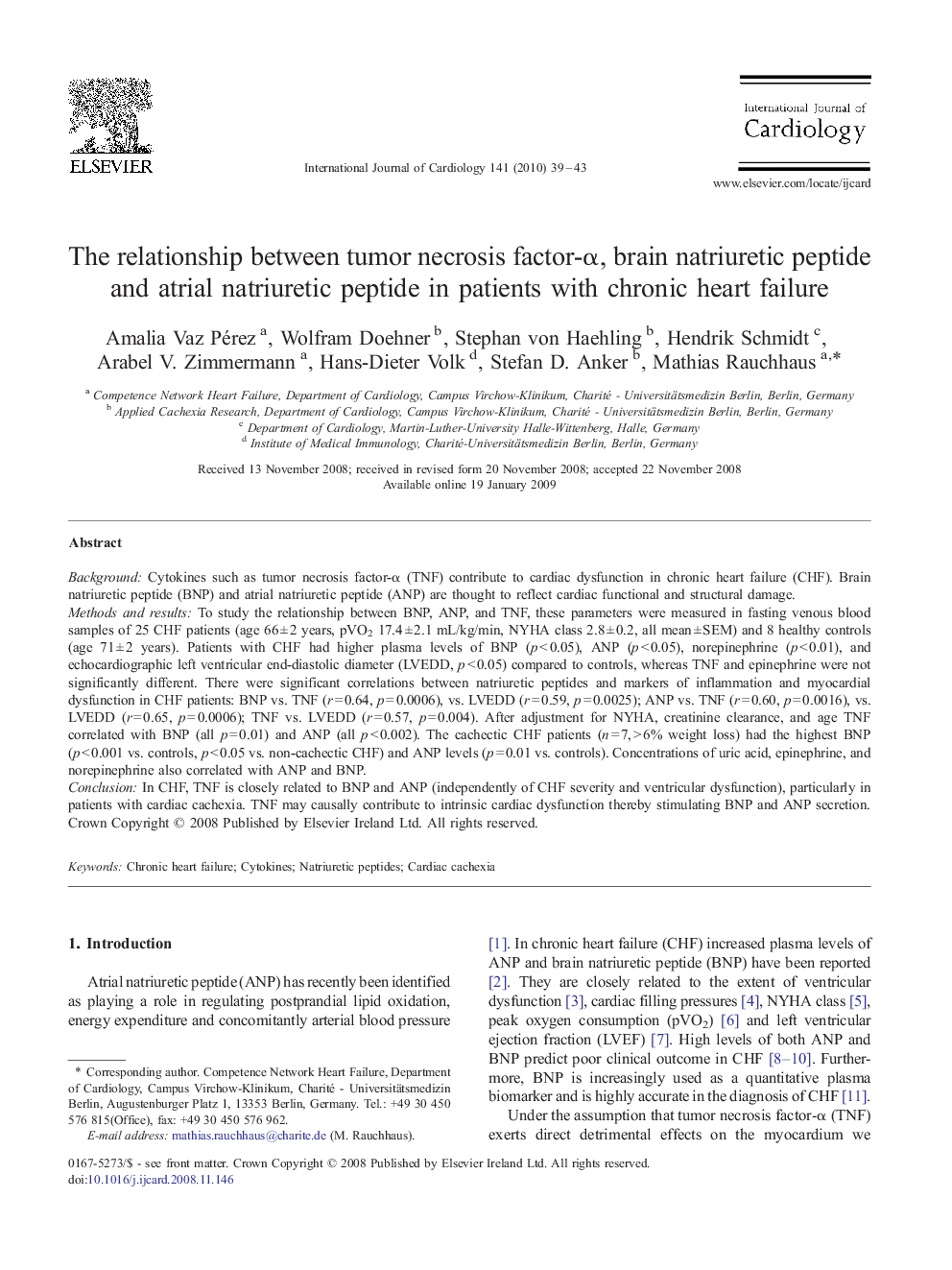| کد مقاله | کد نشریه | سال انتشار | مقاله انگلیسی | نسخه تمام متن |
|---|---|---|---|---|
| 2931992 | 1576302 | 2010 | 5 صفحه PDF | دانلود رایگان |

BackgroundCytokines such as tumor necrosis factor-α (TNF) contribute to cardiac dysfunction in chronic heart failure (CHF). Brain natriuretic peptide (BNP) and atrial natriuretic peptide (ANP) are thought to reflect cardiac functional and structural damage.Methods and resultsTo study the relationship between BNP, ANP, and TNF, these parameters were measured in fasting venous blood samples of 25 CHF patients (age 66 ± 2 years, pVO2 17.4 ± 2.1 mL/kg/min, NYHA class 2.8 ± 0.2, all mean ± SEM) and 8 healthy controls (age 71 ± 2 years). Patients with CHF had higher plasma levels of BNP (p < 0.05), ANP (p < 0.05), norepinephrine (p < 0.01), and echocardiographic left ventricular end-diastolic diameter (LVEDD, p < 0.05) compared to controls, whereas TNF and epinephrine were not significantly different. There were significant correlations between natriuretic peptides and markers of inflammation and myocardial dysfunction in CHF patients: BNP vs. TNF (r = 0.64, p = 0.0006), vs. LVEDD (r = 0.59, p = 0.0025); ANP vs. TNF (r = 0.60, p = 0.0016), vs. LVEDD (r = 0.65, p = 0.0006); TNF vs. LVEDD (r = 0.57, p = 0.004). After adjustment for NYHA, creatinine clearance, and age TNF correlated with BNP (all p = 0.01) and ANP (all p < 0.002). The cachectic CHF patients (n = 7, > 6% weight loss) had the highest BNP (p < 0.001 vs. controls, p < 0.05 vs. non-cachectic CHF) and ANP levels (p = 0.01 vs. controls). Concentrations of uric acid, epinephrine, and norepinephrine also correlated with ANP and BNP.ConclusionIn CHF, TNF is closely related to BNP and ANP (independently of CHF severity and ventricular dysfunction), particularly in patients with cardiac cachexia. TNF may causally contribute to intrinsic cardiac dysfunction thereby stimulating BNP and ANP secretion.
Journal: International Journal of Cardiology - Volume 141, Issue 1, 14 May 2010, Pages 39–43